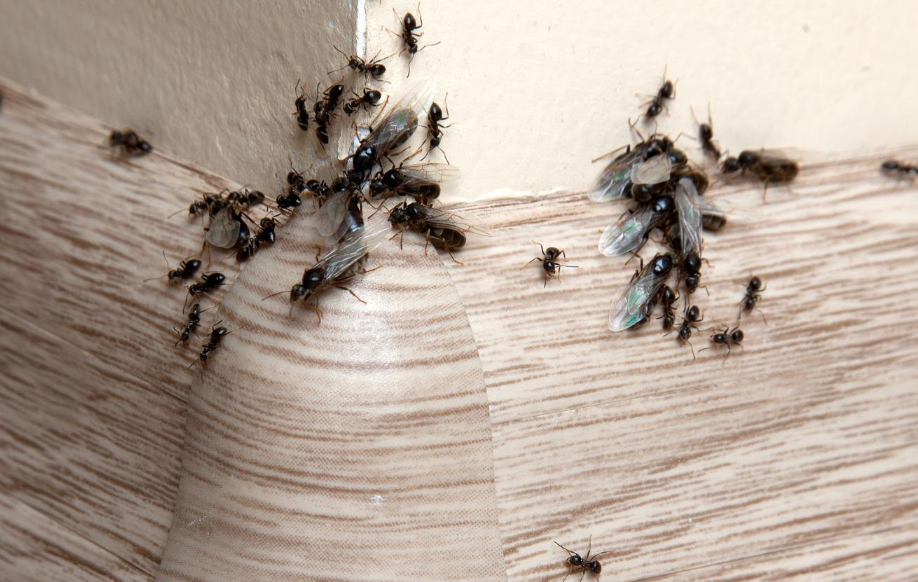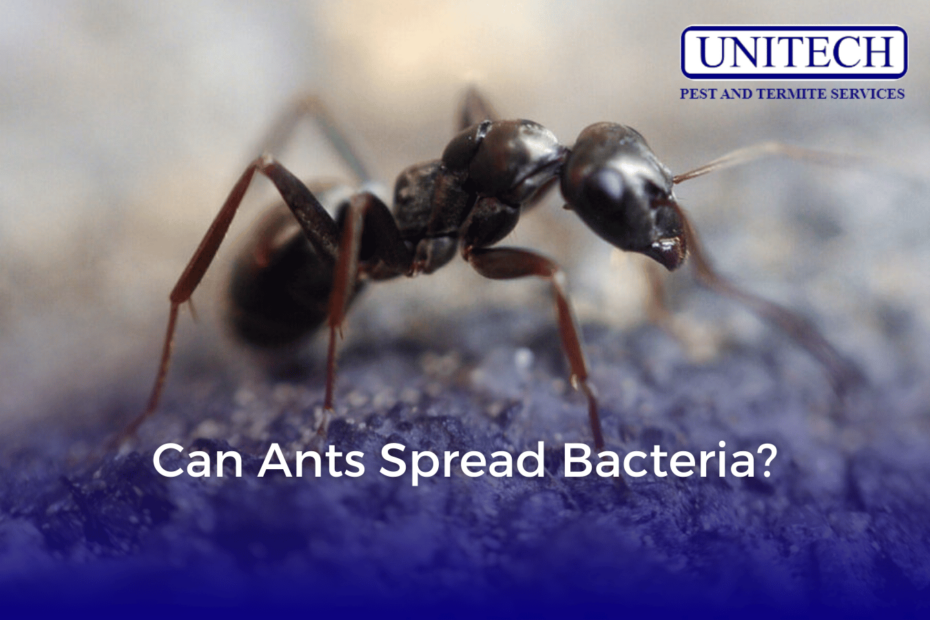Ants infest every nook of your home, be it your garden or kitchen. These tiny creatures often seem harmless, but they can be much worse than you would think it is, especially when they infest your home. Do ants spread bacteria? In this blog post, you can read and learn about the relationship between ants and bacterial risk. By the time you have reached the end, you’ll have understood why it is so important to manage ant infestation to ensure a clean and healthy homely abode.

How Ants Spread Bacteria
Ants travel across various surfaces, picking up bacteria along the way. These insects are scavengers, often found in places like garbage bins, bathroom floors, and kitchen counters. As ants move from one area to another, they carry bacteria on their bodies. This is how they spread germs throughout your home.
Pathways of Bacterial Transmission
Ants can contaminate food and surfaces. When ants find their way into your pantry or kitchen, they can leave bacteria on food items. This contamination can lead to foodborne illnesses if the food is consumed without proper cleaning or cooking. Ants can also leave bacteria on countertops and other surfaces, increasing the risk of spreading infections.
Types of Bacteria Ants May Carry
- Salmonella: This bacterium is often associated with foodborne illnesses, leading to symptoms like stomach cramps, diarrhea, and vomiting. If ingested, it can cause serious health issues, particularly in children and the elderly.
- E. coli: Known for causing severe gastrointestinal distress, E. coli can lead to symptoms such as abdominal pain and diarrhea, and in some cases, may result in kidney complications.
- Staphylococcus: Commonly found on the skin, this bacterium can lead to skin infections and, if it enters the bloodstream, more severe conditions.
By preventing ants from entering your home, you can significantly reduce the risk of these bacteria affecting your household, ensuring a safer and healthier living environment.
How to Control Ants Effectively
To reduce the risk of bacteria spread, it’s essential to control ant populations in your home. Start by sealing entry points such as cracks in walls or gaps around windows and doors. Keeping food stored in airtight containers and cleaning up spills immediately can also help. Regularly taking out the trash and keeping surfaces clean will make your home less attractive to ants.
For those living in specific areas, like St. Louis, MO, professional services can offer targeted ant control solutions. Consulting with experts ensures that ants are effectively managed and reduces the risk of bacteria spread in your home.
Effective Expert Solutions for Ant Management and Health Protection
Ants can indeed spread bacteria, posing potential health risks. They travel across various surfaces and can carry bacteria into your home, contaminating food and surfaces. By understanding how ants spread bacteria and implementing effective control strategies, you can maintain a healthier environment. Simple measures like sealing entry points and maintaining cleanliness can go a long way. For those in areas like St. Louis, MO, seeking professional pest control might be a wise option. Keeping ants at bay is not just about preventing pests but also about safeguarding your health.
Don’t let ants compromise your health! Contact Unitech Pest today for professional ant control in St. Louis, MO. Protect your home and loved ones by ensuring a clean, ant-free environment. Act now to safeguard your well-being with Unitech Pest.


